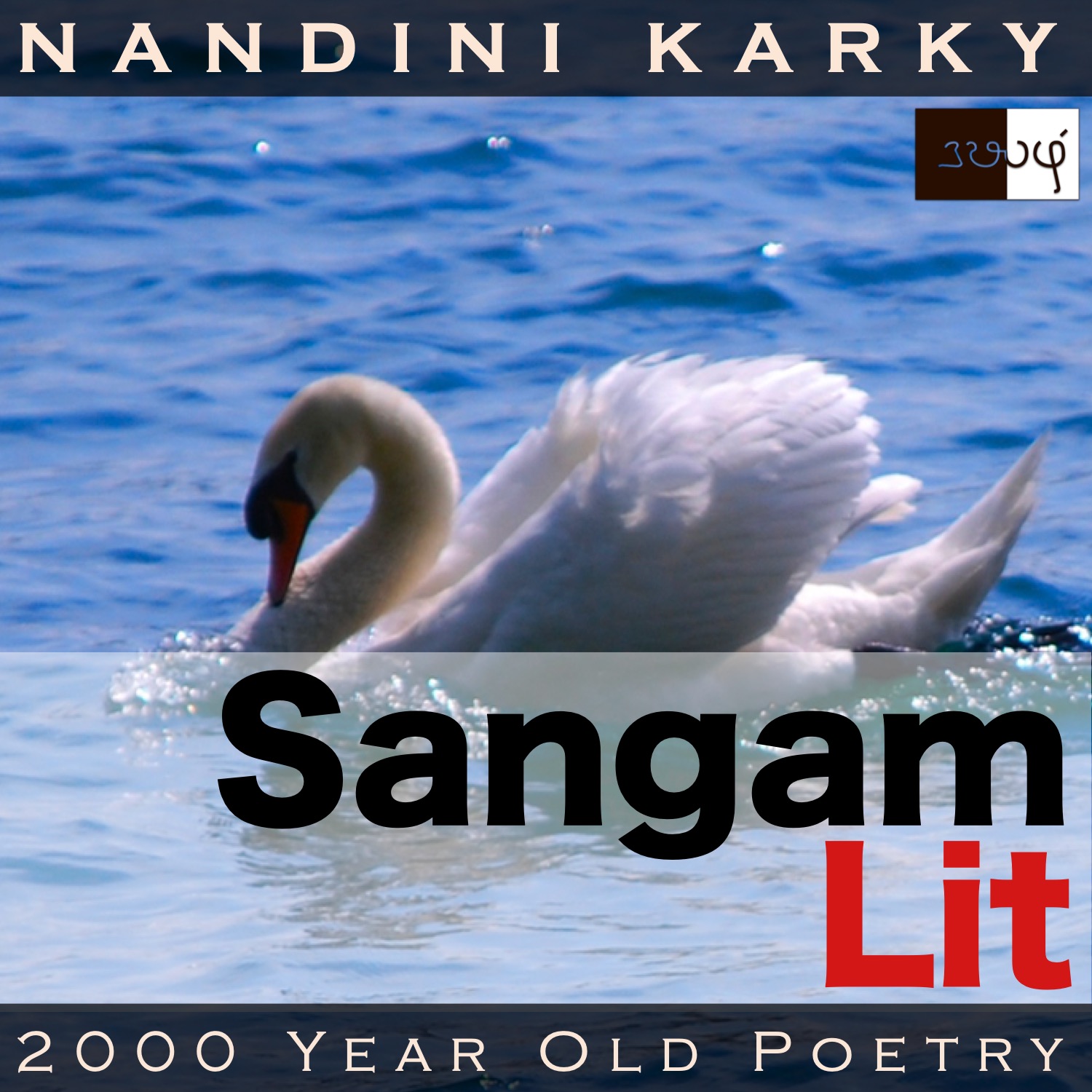Podcast: Play in new window | Download
Subscribe: Apple Podcasts | Spotify | Amazon Music | Android | iHeartRadio | TuneIn | RSS | More

In this episode, I share with you, my exploration of Tamil Sangam literary work, Natrinai Poem 4. This poem has been written by Ammovanaar, on the ‘Neythal’ landscape which includes the sea and coastal regions.
கானல் அம் சிறுகுடிக் கடல் மேம் பரதவர்
நீல் நிற புன்னைக் கொழு நிழல் அசைஇ,
தண் பெரும் பரப்பின் ஒண் பதம் நோக்கி,
அம் கண் அரில் வலை உணக்கும் துறைவனொடு,
”அலரே அன்னை அறியின், இவண் உறை வாழ்க்கை
அரிய ஆகும் நமக்கு” எனக் கூறின்,
கொண்டும் செல்வர்கொல்-தோழி!-உமணர்
வெண் கல் உப்பின் கொள்ளை சாற்றி,
கண நிரை கிளர்க்கும் நெடு நெறிச் சகடம்
மணல் மடுத்து உரறும் ஓசை கழனிக்
கருங் கால் வெண் குருகு வெரூஉம்
இருங் கழிச் சேர்ப்பின் தம் உறைவின் ஊர்க்கே!
I was excited that this was about the Neythal landscape, because with these words, I could stay right here in this same place, in coastal Chennai and just travel back in time. It felt close, being in the same landscape as this place I call home. Interesting to see words like நீல் meaning blue in this ancient poem, for ‘Neel’ is the root word for blue in not just Tamil but in many Indian languages including Hindi. An indication of that elusive oneness that unites the north and south of this country. I smiled at the reference to the ‘Punnai maram’, the laurel wood tree, that we see around in our parks and roads even today. I was also able to feel the salty breeze on my face, as I read words pertaining to fisherfolk, living by the shore, their nets and so on. In ‘கருங் கால் வெண் குருகு’, there appears before your eyes, the radiant image of a white bird with black legs, making you wonder which bird that might be!
On repeated readings, I understood the core thought in the verse: This is a question put forward by a lady’s confidante to the lady, conveying that rumours were spreading about the lady’s affair with the man and if mother were to know of it, life wouldn’t be easy anymore. So she asks, if you tell of this state to your man, will he take you to his town, by the black backwaters, where salt merchants peddle their wares on bullock carts and white birds look up in fear hearing these noises in the air?
Delving a little further, we find an interesting reference to the ‘Neythal’ man. Here he is, in that small village by the seashore, standing under the dark blue shade of the ‘Punnai’ or the laurel tree, biding his time to go out into the sea. He seems to be standing there, untangling the matted nets in these words ‘அரில் வலை உணக்கும் துறைவனொடு’. The image of a ‘Neythal’ man from today flashed before my eyes. A person I glimpsed at, on a morning walk by the seashore. A fisherman in a T-shirt and shorts, carrying nets in his hands, made of plastic. I just wanted to travel back in time and steal those Sangam nets, so that our wildlife today will be spared. Perhaps archaeological researchers and historians can enlighten us about the materials used then and take us back to a better future.
And coming back to the verse, the sea, in turn is described as a ‘cool vastness’ with the words ‘தண் பெரும் பரப்பின்’. How might these fisherfolk be spending their time in wait? Perhaps, scanning the skies and sensing the wind! The friend says the lady should convey to her man by the seashore, that rumours were spreading about their affair and might reach the ears of mother soon. And then she asks, “If you say so, will he relent and take you with him to his town?”
There’s a sense of fear tangible in the verse, which ends up being projected on those white birds with black legs, the great egret perhaps, as they look up startled on hearing these uproarious noises. Those screaming voices of the salt merchants selling their wares and hastening their bulls with a ‘tch, ‘tch’. The man’s town is portrayed and so is the fear inherent in this situation of the rumour reaching mother’s ears.
On reflecting, what power does a mother seem to possess! Mother’s the boss indeed! She seems to be able to evoke such fear about one’s behaviour. Or perhaps, through the friend, is the lady, nudging on the man into a commitment? This poem makes me think of the 2000 Tamil movie ‘Alaipayuthey’, with its shades of a secret relationship and the say parents seem to have in one’s love life, 2000 years onward!




Nicee